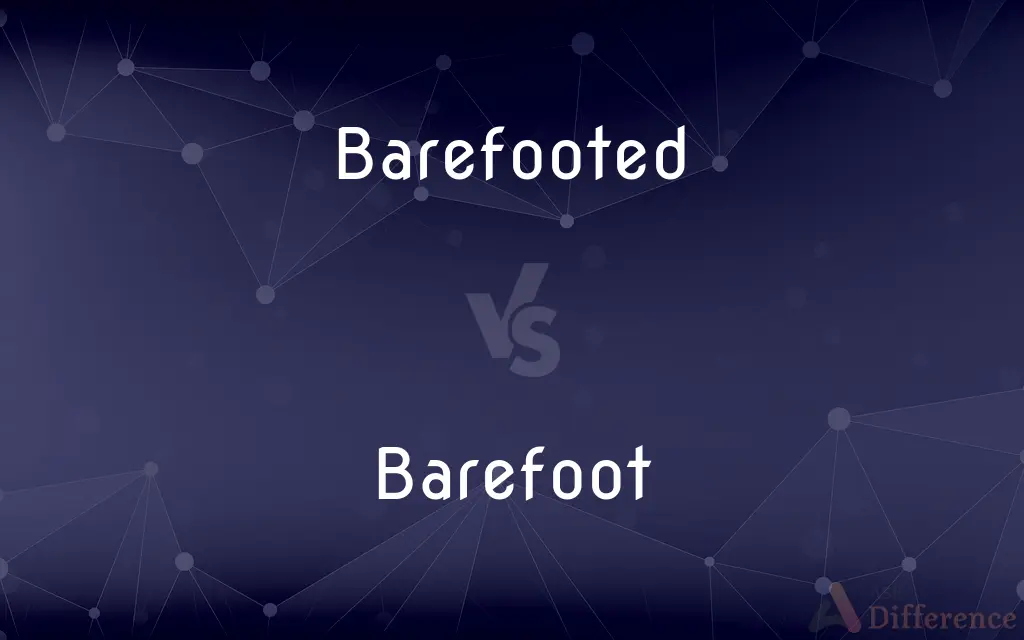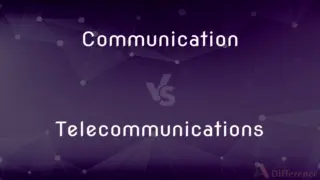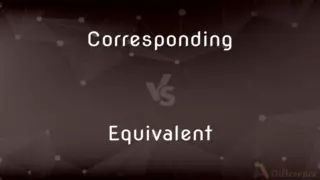Barefooted vs. Barefoot — What's the Difference?
By Tayyaba Rehman & Maham Liaqat — Updated on March 31, 2024
Barefoot emphasizes the state of not wearing any shoes or socks, while barefooted serves as an adjective form, often used to describe the condition or action of being barefoot.

Difference Between Barefooted and Barefoot
Table of Contents
ADVERTISEMENT
Key Differences
Barefoot is primarily used to describe the condition of not wearing any footwear, highlighting a person’s direct contact with the ground. It focuses on the absence of shoes and socks, allowing for a natural tactile experience. Barefooted, on the other hand, is an adjective that describes someone who is in the state of being barefoot. It emphasizes the characteristic or choice of not wearing footwear, potentially as part of a description of an action or state.
When someone says they prefer to walk barefoot, it implies a preference for feeling the ground directly under their feet, suggesting a more intimate or natural interaction with their surroundings. This can be for comfort, sensory experience, or health reasons. In contrast, describing someone as barefooted might be used in more descriptive narratives, focusing on the person’s appearance or the action of walking without shoes, such as in literature or detailed accounts.
Barefoot is often used in contexts where the focus is on the experience or benefits of not wearing shoes, such as discussions about the health benefits of walking barefoot on grass. Barefooted might be more frequently used in contexts that call for a more formal or detailed descriptive form, although the distinction is subtle and often overlaps with the usage of barefoot.
The usage of barefoot versus barefooted can also depend on regional preferences and the formality of the language. Barefoot is more commonly used in everyday language, while barefooted might appear in more formal or written contexts, though this is not a strict rule, and both terms are widely understood and used interchangeably by most English speakers.
Despite these nuances, both terms are accepted and understood to mean without shoes. The choice between barefoot and barefooted often comes down to personal or stylistic preference, rather than any significant difference in meaning. Both convey the concept of not wearing footwear, though barefoot may be perceived as slightly more contemporary or informal in usage.
ADVERTISEMENT
Comparison Chart
Primary Usage
Describes the state of not wearing shoes or socks.
Adjective form describing the condition of being without shoes.
Context
Used in both casual and formal contexts.
Often used in more descriptive, sometimes formal narratives.
Focus
Emphasizes the absence of footwear for sensory experience.
Describes the characteristic of not wearing footwear.
Commonality
More commonly used in everyday language.
Less common, can be used for emphasis in written language.
Regional Usage
Widely used across various English-speaking regions.
Usage may vary; some regions prefer "barefoot."
Compare with Definitions
Barefooted
Without any footwear, directly exposing the feet to the ground.
Walking barefoot on the beach is one of summer's pleasures.
Barefoot
Having the feet uncovered, not wearing shoes or socks.
The children were barefooted, playing in the mud.
Barefooted
A state of not wearing shoes or socks.
She prefers to be barefoot at home for comfort.
Barefoot
Characterized by the absence of footwear.
In the painting, a barefooted maiden walks through the forest.
Barefooted
Engaging in activities without wearing footwear.
He runs barefoot for better foot mechanics.
Barefoot
Describing someone who is in the state of being without shoes.
The dancers were all barefooted, feeling the stage beneath their feet.
Barefooted
A natural or uninhibited state, often used metaphorically.
The book encourages living life barefoot, embracing nature fully.
Barefoot
Often used to emphasize the condition or action of being barefoot in descriptive writing.
The barefooted explorer trekked across the desert sands.
Barefooted
A lifestyle choice favoring no shoes for health reasons.
Adopting a barefoot lifestyle can improve foot health.
Barefoot
Referring to the choice of not wearing shoes in a particular situation or narrative.
Guests were asked to remain barefooted in the sacred hall.
Barefooted
With nothing on the feet
Walking barefoot in the grass.
A barefoot boy.
Barefoot
Barefoot is the most common term for the state of not wearing any footwear. There are health benefits and some risks associated with going barefoot.
Barefooted
Wearing nothing on the feet; barefoot.
Barefoot
With nothing on the feet
Walking barefoot in the grass.
A barefoot boy.
Barefooted
Wearing nothing on the feet; barefoot.
Barefoot
Wearing nothing on the feet.
After taking off their shoes, socks and sandals at the doorway, the kids were barefoot.
Barefooted
Having the feet bare.
Barefoot
(informal) Of a vehicle on an icy road: not using snow chains.
Barefooted
Without shoes;
The barefoot boy
Shoeless Joe Jackson
Barefoot
Transmitting without the use of an amplifier.
Barefooted
Without shoes on;
He chased her barefoot across the meadow
Barefoot
Wearing nothing on the feet.
She likes to go barefoot in the summertime.
Barefoot
Transmitting without the use of an amplifier.
Barefoot
With the feet bare; without shoes or stockings.
Barefoot
Without shoes;
The barefoot boy
Shoeless Joe Jackson
Barefoot
Without shoes on;
He chased her barefoot across the meadow
Common Curiosities
Why would someone choose to be barefoot or barefooted?
Reasons vary from comfort and health benefits to cultural practices.
Are there health benefits to being barefoot?
Yes, walking barefoot can improve foot mechanics and strength.
Is it socially acceptable to be barefoot in public places?
Acceptance varies by culture, location, and specific setting.
Is "barefooted" grammatically correct?
Yes, "barefooted" is grammatically correct and functions as an adjective.
Can "barefoot" and "barefooted" be used interchangeably?
In most contexts, yes, though "barefoot" is more commonly used.
How do I decide whether to use "barefoot" or "barefooted" in writing?
Consider your audience and the formality of the context; "barefoot" is generally more common.
Do "barefoot" and "barefooted" have the same meaning in all English-speaking countries?
Essentially yes, though usage preferences can vary regionally.
Can children benefit from being barefoot?
Yes, it can support natural foot development and sensory experiences.
Is there a difference in emphasis between "barefoot" and "barefooted"?
"Barefooted" can sometimes provide a more formal or descriptive emphasis.
Can walking barefoot cause health issues?
Without proper hygiene or in hazardous environments, yes, it can pose risks.
Is it safe to drive barefoot or barefooted?
Legally yes, in many places, but it depends on individual comfort and control.
Why do some people prefer being barefoot at home?
Comfort, relaxation, and a sense of freedom are common reasons.
Are there any cultural significances associated with being barefoot?
Yes, in some cultures, being barefoot is a sign of respect or part of spiritual practices.
Can being barefoot affect one's posture or walking style?
Yes, it can lead to more natural foot movements and improve posture.
Is "barefoot" more modern than "barefooted"?
"Barefoot" is perceived as slightly more contemporary in everyday usage.
Share Your Discovery

Previous Comparison
Communication vs. Telecommunications
Next Comparison
Corresponding vs. EquivalentAuthor Spotlight
Written by
Tayyaba RehmanTayyaba Rehman is a distinguished writer, currently serving as a primary contributor to askdifference.com. As a researcher in semantics and etymology, Tayyaba's passion for the complexity of languages and their distinctions has found a perfect home on the platform. Tayyaba delves into the intricacies of language, distinguishing between commonly confused words and phrases, thereby providing clarity for readers worldwide.
Co-written by
Maham Liaqat













































